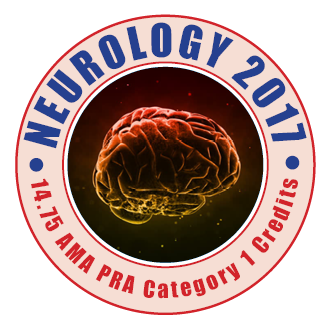
Harish C Pant
National Institutes of Health, USA
Title: Novel basic cell biological approaches to prevent the neuropathological disease symptoms and behavior
Biography
Biography: Harish C Pant
Abstract
The biology of neurodegeneration program evolved from our laboratory studying the basic biology of neuronal cytoskeletal protein phosphorylation during development and normal function in the adult. To understand the molecular basis of neurodegeneration our major focus has been to study the regulation of compartment-specific patterns of cytoskeletal protein phosphorylation in neuronal perikarya and axons. We have demonstrated that phosphorylation of the numerous acceptor sites on such proteins as Tau and neurofilament are tightly and topographically regulated and generally confined to the axonal compartment under physiological conditions. However, during neuronal insults, it is deregulated induces neuropathology. During our course of studies to understand the biology of this regulation we identified cyclin dependent kinase5 (Cdk5); a neuron specific kinase involved in the nervous system development, function and survival. It was recognized that in neurodegenerative disorders such as Alzheimer’s disease (AD), Parkinson’s (PD) and Amyotrophic lateral sclerosis (ALS) the pathology was characterized by aberrant and hyper activation of Cdk5 and accumulation of aberrantly hyper phosphorylated cytoskeletal proteins in cell bodies, suggesting that topographic regulation had been compromised. This led inevitably into studies of neurodegeneration in cell culture and model mice with emphasis on Cdk5, that targets numerous neuronal proteins including cytoskeletal protein regulation by phosphorylation, which when deregulated, is responsible for the pathology seen in neurodegenerative diseases. In cell systems, neuronal stress leads to deregulated kinases. Recently we have discovered peptides derived from, p35, and a neuron specific activator of Cdk5, which rescue cells in vitro from stress induced pathology. The questions currently being investigated are (1) how is cytoskeletal protein phosphorylation topographically regulated in neurons? (2) What factors are responsible for the deregulation of Cdk5 in neurons? (3) Can mouse models of AD, PD and ALS be treated therapeutically with peptides that inhibit deregulated Cdk5?

